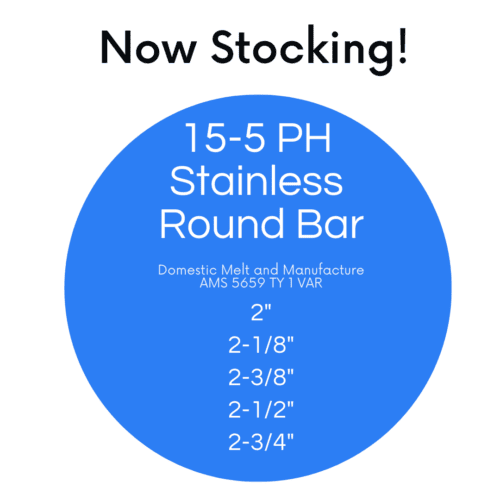Aluminum
Aluminum is a light, silvery-white metal. It is non-toxic and has a low density and high thermal conductivity. It also resists corrosion and is easily cast, machined, and formed. Aluminum is used in various products, including containers, foils, kitchen tools, glass panels, beer kegs, and automotive parts. Moreover, it is an excellent electrical conductor frequently used in transmission networks. Aluminum is also relatively cheaper than copper and has nearly twice the conductivity.
Aluminum Products Extrusion
Extrusions are widely used in various high-quality aluminum products, including those used in the consumer, manufacturing, electrical and electronics, security, automotive, and marine industries. Extruded aluminum is produced by heating aluminum and forcing it through a die. Extruded aluminum bars, in particular, are solid and lightweight bars applicable to various aerospace components.
Under the extruded aluminum are products that include the following:
- Rectangular bars
- Square hexagonal bars
- Round rods
- Angles sharp and round corners
- Channels sharp and round corners
- Tees sharp and round corners
- Zee bar
- Round tube
- IPS pipe round
- Serrated tubes
- Rectangular tubes
- Rectangular tube round with round corners
- I-beams rounded angle and sharp corners
- I-beams rounded angle and rounded corners
- I-beams tapered walls
Bergsen Metals offers aluminum extrusions from the 3000, 5000, and 6000 series and the highly long-lasting 6061-T6511 extruded bar, which is smooth and corrosion-resistant.
Types of Aluminum
Aluminum comes in a variety of types. Here are some of the most common aluminum types, including their features and applications:
Hard Aluminum
Aluminum with a hardness rating of 2024-T351 is the hardest, but it is challenging to work with. This aluminum type is common in airplanes and riveting projects and cannot be welded.
Flexible Aluminum
Aluminum alloy foil is the most flexible aluminum type because its manufacturing process flattens the aluminum into thin sheets. Many businesses use foil for packaging a wide range of products, from consumables to cosmetics and household items.
Sheet Aluminum
Sheet aluminum is formed by marking or spinning, requiring alloy to make it strong. Alloyed aluminum, for example, can be used in pots and pans due to the addition of common alloys such as magnesium, copper, and bronze for strength and durability.
Clad Aluminum
Clad aluminum, also known as treated aluminum, has zinc, silicon, copper, stainless steel, nickel, or magnesium coating. Cladding improves corrosion resistance because bare aluminum is highly corrosive. Because of its durability, this aluminum type is used in the aircraft and food processing industries.
Bare Aluminum
The reflective properties of bare aluminum deteriorate as it corrodes and oxidizes. On the other hand, the interior material remains strong because the corrosion keeps moisture and air out. Allowing the metal to rust on its surface may be an appropriate strategy for a project where appearance is unimportant.
Aluminum Manufacturing Alloys
Aluminum alloys are another type of aluminum that is commonly used in manufacturing. Each class is a series that starts with a number between one and seven. Each series is made from a different alloy. There can be many distinctions in use and characteristics within the series.
- Alloy 1000 – It is the purest, containing a minimum of 99% aluminum, and it is primarily found in chemical tanks and conductive bus bars.
- Alloy 2000 – It is made of copper alloy and is widely used in aircraft and aerospace applications.
- Alloy 3000 – Its composition includes manganese alloy, which is common in cookware and vehicles.
- Alloy 4000 – It is an alloy that welders frequently use. It utilizes silicon, which lowers the alloy’s melting point.
- Alloy 5000 – It contains magnesium and silicone and is used to create structural elements such as beams, tubes, and angles.
- Alloy 6000 – It is alloyed with magnesium and silicon and is easy to machine and weld.
- Alloy 7000 – It contains zinc alloys and provides high strength in the aerospace and sports industries.
As previously mentioned, aluminum has a high-grade ratio, making it lightweight and long-lasting. A diverse range of aluminum products is suitable for every usage and application. As a full-service metal provider, Bergsen Metals assists clients in obtaining standard and custom raw materials to suit their applications. Custom aluminum products and aluminum building products are also available.
Bergsen Metals looks forward to working with you. Request a quote or contact us now!





